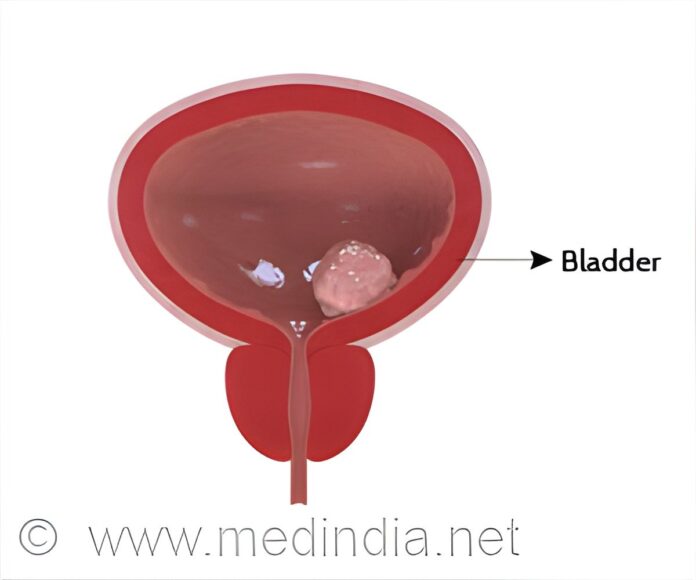New drug combination offers major survival benefits for advanced bladder cancer patients unsuitable for cisplatin.
Bladder cancer stands as one of the main factors leading to cancer-related disability and death among patients of the elder age group. Some patients are unable to use Cisplatin-based chemotherapy treatments because of the significant adverse effects.
Numerous studies demonstrate that combining Enfortumab vedotin and Pembrolizumab shows great potential to treat locally advanced or metastatic urothelial carcinoma patients who cannot receive cisplatin-based chemotherapy. The treatment strategy offers real gains in patient survival as well as successful results, opening up new avenues for cancer treatment.
Power Pair: Enfortumab Meets Pembrolizumab
To find out how
The results were remarkable:
- Doctors measured overall survival in participants as 26.1 months in the combination therapy group, while standard chemotherapy patients survived for 16.2 months.
- The combination group demonstrated better progression-free survival.
- Among treated patients, there was a 67.7% response to tumor shrinkage and a 29.1% rate of complete response.
- Enfortumab Vedotin Plus Pembrolizumab in Previously Untreated Advanced Urothelial Cancer – (https://pubmed.ncbi.nlm.nih.gov/36041086/)
In comparison to prior medical outcomes for this patient group, which had few effective treatment options, the study achieved remarkable success (1✔ ✔Trusted Source
Enfortumab Vedotin Plus Pembrolizumab in Previously Untreated Advanced Urothelial Cancer
Go to source
).
From Trial to Triumph
Although cisplatin is a common first-line treatment, doctors are unable to prescribe it to over half of patients who have hearing loss, renal dysfunction, or poor health. The therapeutic gap created by the contraindications of cisplatin treatments can potentially be filled by pembrolizumab and enfortumab vedotin.
The German Institute for Quality and Efficiency in Health Care (IQWiG) analyzed the clinical data to determine that combination therapy showed a possible significant clinical benefit. The research’s authors emphasized how therapy could change conventional treatment methods for this challenging patient population.
Dual-Action Attack: Targeted & Immune-Boosting
Both Medical and Urologic oncologists predict that this drug combination will reshape existing treatment approaches. The dual mechanism of approach includes targeted delivery of cytotoxic elements to tumor cells through enfortumab vedotin and the activation of immune responses to cancer cells through pembrolizumab.
Advanced urothelial carcinoma patients without cisplatin eligibility may soon choose the first-line treatment with this combination therapy due to its favorable survival rates and high tolerability.
Reference:
Source-Institute for Quality and Efficiency in Health Care


